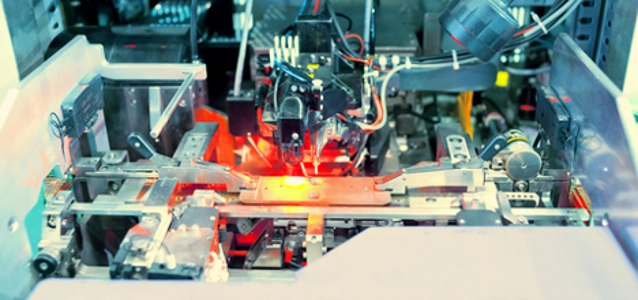
© pengyou93 dreamstime.com
Business |
European Commission Vice President Neelie Kroes says "Others are aggressively investing in computer chips and Europe cannot be left behind. We have to reinforce and connect our existing strongholds and develop new strengths. A rapid and strong coordination of public investment at EU, Member State and regional level is needed to ensure that transformation." The European electronics sector underpins Europe's wider industrial competitiveness because it is a Key Enabling Technology for other sectors, from energy to automotive to health. A growing electronics sector is essential for growth and jobs in Europe. Neelie Kroes said: "I want to double our chip production to around 20% of global production. I want Europe to produce more chips in Europe than the United States produces domestically. It's a realistic goal if we channel our investments properly." Key elements of this industrial strategy include
EC proposes industrial strategy for electronics
The European Commission today launches a campaign for coordinated public investments in micro- and nano-electronics (such as semiconductors and computer chips), designed to expand Europe's advanced manufacturing base.
European Commission Vice President Neelie Kroes says "Others are aggressively investing in computer chips and Europe cannot be left behind. We have to reinforce and connect our existing strongholds and develop new strengths. A rapid and strong coordination of public investment at EU, Member State and regional level is needed to ensure that transformation." The European electronics sector underpins Europe's wider industrial competitiveness because it is a Key Enabling Technology for other sectors, from energy to automotive to health. A growing electronics sector is essential for growth and jobs in Europe. Neelie Kroes said: "I want to double our chip production to around 20% of global production. I want Europe to produce more chips in Europe than the United States produces domestically. It's a realistic goal if we channel our investments properly." Key elements of this industrial strategy include
- Higher and more coordinated investments in R&D&I - maximising the impact of EU and Member State investments through greater cross-border collaboration (70% of public investment is expected to come from Member States, 30% from EU).
- Reinforcing Europe's three world-class electronics clusters: Dresden (DE), Eindhoven (NL) /Leuven (BE), and Grenoble (FR) and connecting with other leading edge European clusters such as in Cambridge (UK), Carinthia (AT), Dublin (IRL) and Milan (IT).
- The strategy will focus on three complementary lines: making chips cheaper (transitioning to 450mm-sized silicon wafers, the raw material for the chips), making chips faster ("More Moore") and making chips smarter ("More than Moore").
- Mobilising €10 billion of private, regional, national and EU funds, behind a common set of research and innovation goals, including €5 billion through a joint Public-Private Partnership. This seven-year partnership is designed to cover the whole value and innovation chain in the electronics sector, including funding large-scale innovation projects, under the EU's Horizon 2020 research programme.

